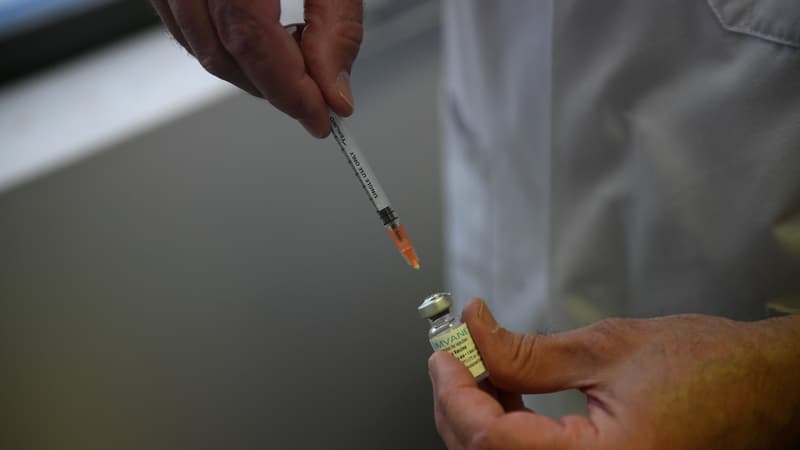The monkeypox vaccine is highly effective, and this as early as two weeks after the first dose, according to the first real-world data released Wednesday by US health authorities.
Unvaccinated people are 14 times more likely to be infected with monkeypox than vaccinated people, according to the Centers for Disease Control and Prevention (CDC), the nation’s leading federal health agency.
This analysis was performed by comparing the number of confirmed cases in vaccinated and unvaccinated people, within the eligible population (people at risk, including men who have sex with men). The analysis includes data from around 30 US states, between July and September 2022.
The first dose is already effective
The Bavarian Nordic laboratory vaccine, marketed under the name Jynneos in the United States, is the only one approved specifically against monkeypox.
It is given in two doses, 28 days apart. But the CDC data took into account cases of people who had only received a single dose so far (at least two weeks earlier). Therefore, they suggest that the vaccine already offers some protection from the first dose.
Authorities also plan to collect efficacy data after the second dose and continue to recommend these two doses for maximum protection.
700,000 doses in the United States
“Until now we have only had limited data on the performance of the monkeypox vaccine under real-world conditions,” Rochelle Walensky, director of the CDC, said during a news conference. “These new data allow us to be cautiously optimistic that the vaccine is working as expected.”
The Jynneos vaccine had been approved based on animal and human studies evaluating the immune response elicited by its injection, but not on measures of its effectiveness.
Nearly 700,000 doses of this vaccine have been administered in the United States, which has recorded more than 25,000 cases of monkeypox since May. After a spike in daily infections in mid-August, the rate of new infections has slowed. More than 66,000 cases have been recorded worldwide in 2022, the vast majority outside African countries where the disease is endemic.
Source: BFM TV


